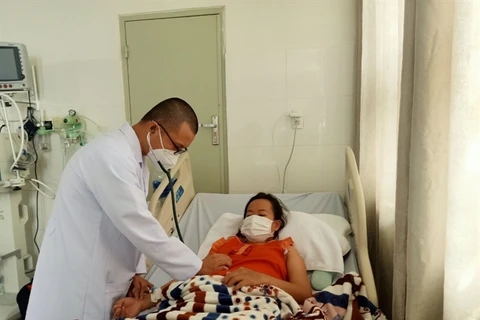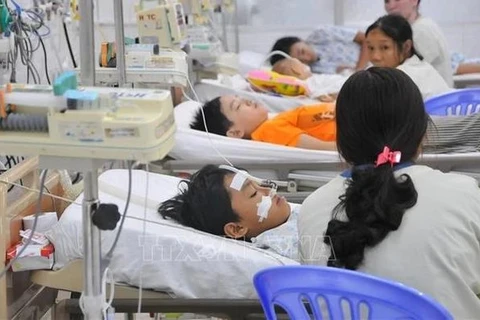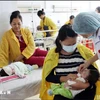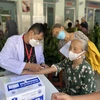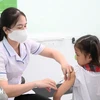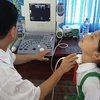
Hanoi (VNA) – Dengue fever is evolving to become more unpredictable and spread on a larger scale, heaping pressure on the healthcare system, experts have warned, noting that rapid urbanisation and climate change are further complicating challenges to disease prevention and control.
The information was shared during a discussion on anti-dengue fever solutions organised by the Government Portal on December 3.
Since the beginning of this year, Vietnam has recorded over 114,900 cases of dengue fever, including 18 fatalities, representing a 20.2% decrease in cases and 22 fewer deaths compared to the same period last year.
Prof. Dr. Vu Sinh Nam, senior advisor on dengue fever at the National Institute of Hygiene and Epidemiology and General Secretary of the Vietnam Association of Preventive Medicine, observed that Vietnam previously experienced an epidemic peak every 10 - 12 years. However, between 2019 and 2023, the country faced two major outbreaks with over 300,000 cases in 2029 and 370,000 cases in 2022, resulting in 150 deaths.
Previously, dengue fever outbreaks concentrated in the Mekong Delta and the central coastal region. Now, they have spread to southeastern, north-central, and Central Highlands areas. Notably, northern localities, including Hanoi and some mountainous provinces, have also reported outbreaks.
Currently, there is no specific medication for dengue fever, and treating symptoms is still the main therapy. As the disease is caused by four different virus types, it makes outbreak prediction and control particularly challenging.
Assoc. Prof. Dr. Nguyen Thanh Hung, Director of the Ho Chi Minh City Children's Hospital 1, emphasised that all age groups are at risk of contracting dengue fever, from children to adults. High-risk groups include pregnant women, infants under 12 months of age, children with congenital illnesses, anemia or asthma, as well as adults with kidney failure.
Dr. Hoang Minh Duc, Director of the Department of Preventive Medicine under the Ministry of Health, noted that Vietnam records nearly 200,000 dengue cases annually, placing a significant economic burden on the population.
He highlighted certain gaps in dengue prevention. Until a vaccine is widely available, traditional methods such as eliminating disease vectors remain the most effective strategy. However, completely eradicating these vectors remains a formidable challenge.
Nam pointed out that vaccine is a valuable addition to existing prevention efforts as it can reduce severe cases and hospitalisations, particularly in vulnerable groups like children and the elderly.
Nevertheless, vaccine alone cannot entirely prevent dengue cases. For this reason, the World Health Organisation emphasises comprehensive vector control as a critical factor of dengue prevention. Success in dengue control requires close coordination among agencies, sectors, as well as the public, Nam added./.

